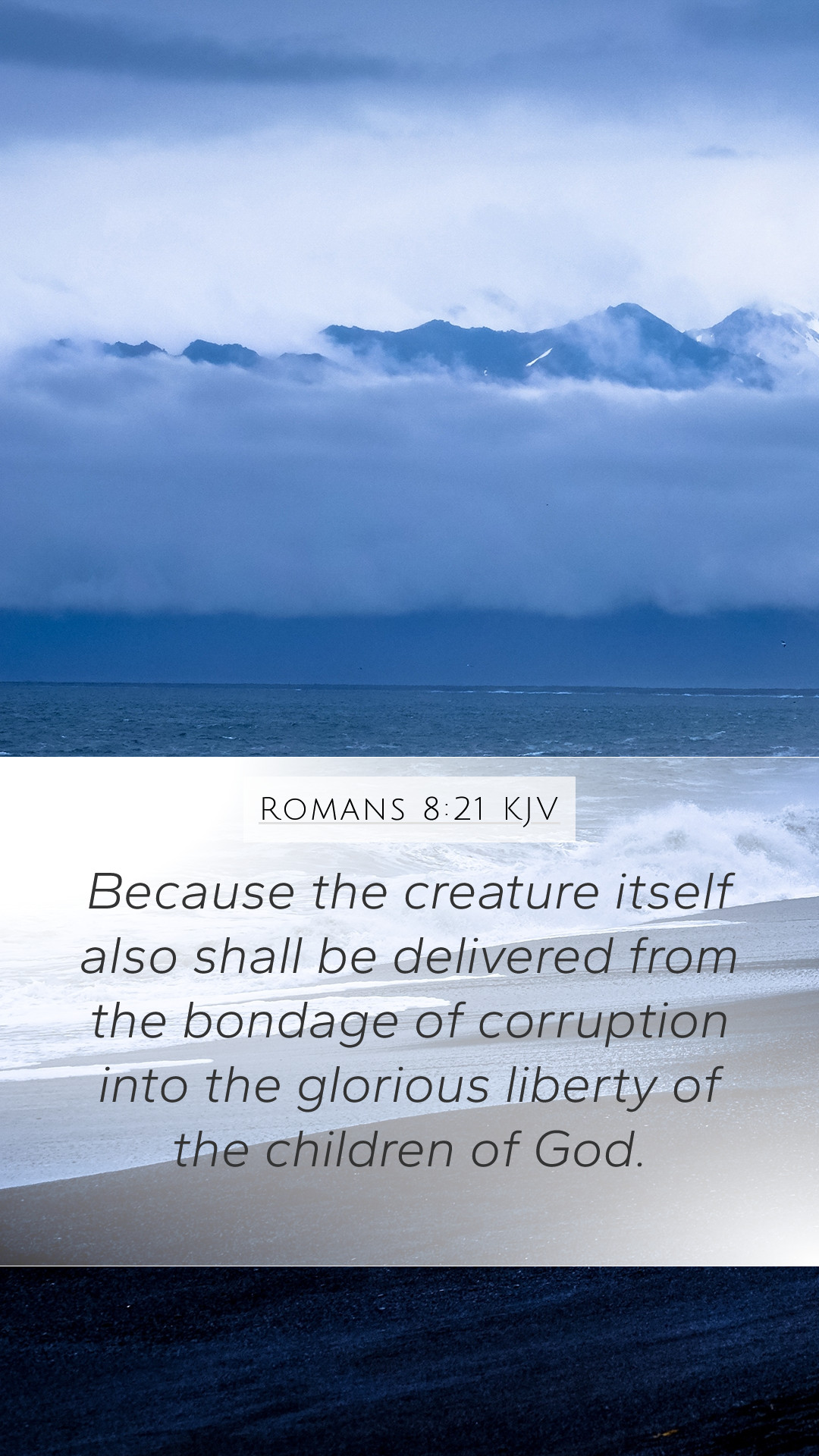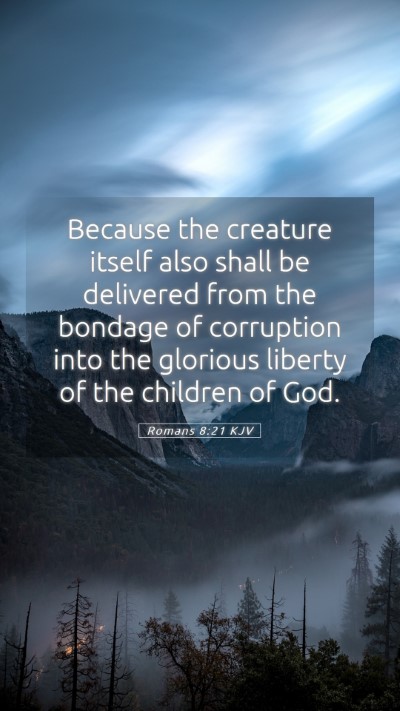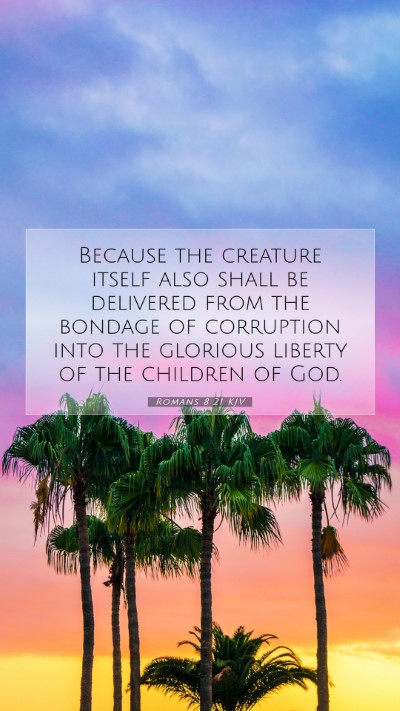Understanding Romans 8:21
Romans 8:21 states, "That the creation itself will be set free from its bondage to corruption and obtain the freedom of the glory of the children of God." This verse resonates deeply with themes of redemption and hope within the broader context of Scripture. Below is a comprehensive analysis that combines insights from public domain commentaries, enabling a richer understanding of this profound text.
Verse Meaning and Interpretation
General Overview: This verse highlights the future liberation of creation from the decay and corruption caused by sin. Paul emphasizes that all of creation—nature, humanity, and all living things—awaits a transformation that reflects the glory of God's children.
- Matthew Henry's Commentary: Henry emphasizes the universality of creation's groaning as it longs for deliverance. He elaborates that just as human beings experience decay, so too does the entire world; however, there is a promise of renewal and restoration.
- Albert Barnes' Notes: Barnes notes that the bondage to corruption refers to the current state of the world, marked by suffering and sin. He reflects on the future hope where God's work will culminate in restoration, making everything new.
- Adam Clarke's Commentary: Clarke provides insights into the notion of "the glory of the children of God," suggesting that the reaching of this glory is both a present reality and a future hope, tying human experience to the broader cosmic redemption.
In-depth Analysis
Biblical Context: The apostle Paul writes in Romans 8 to address the overarching narrative of salvation. Verses prior speak of suffering and future glory, linking these themes together to show that even our struggles are part of a larger redemptive purpose in God's plan.
- Corruption and Bondage: This refers not only to moral corruption resulting from human sin but also to the natural world that suffers under the weight of such sin. The earth is in a state of decay, longing for redemption just as humanity does.
- Freedom through Christ: Paul presents the idea that through Christ, believers are assured freedom not just from sin, but also from the decay that affects all of creation. This transformation is anticipated eagerly.
- Theological Significance: This verse affirms the Christian hope in the resurrection—just as Christ was resurrected, so too will creation see a transformation that brings it into the fullness of God’s glory.
Application to Daily Life
Understanding this verse encourages believers to hold onto hope in the face of suffering. The recognition of a future freedom and glorious restoration can serve as a motivation in overcoming life's challenges. Church communities, especially during bible study groups, can delve into the implications of such promises for their lives.
Related Bible Verses
- 2 Peter 3:13: "But according to his promise we are waiting for new heavens and a new earth in which righteousness dwells."
- Revelation 21:1: "Then I saw a new heaven and a new earth, for the first heaven and the first earth had passed away."
- Isaiah 65:17: "For behold, I create new heavens and a new earth, and the former things shall not be remembered or come into mind."
Conclusion
In summary, Romans 8:21 encapsulates significant themes of hope and cosmic redemption. It stands as a promise that transcends human suffering and decay, pointing towards a future filled with divine glory. Engaging with this verse through bible study tools and resources can yield deeper understanding and enrich the faith journey.
To truly grasp the meaning of Bible verses like Romans 8:21, individuals and groups alike benefit from continuous study and reflection. This verse serves not only as a glimpse into God's plan for creation but also as a beacon of hope for believers navigating the complexities of a fallen world.


